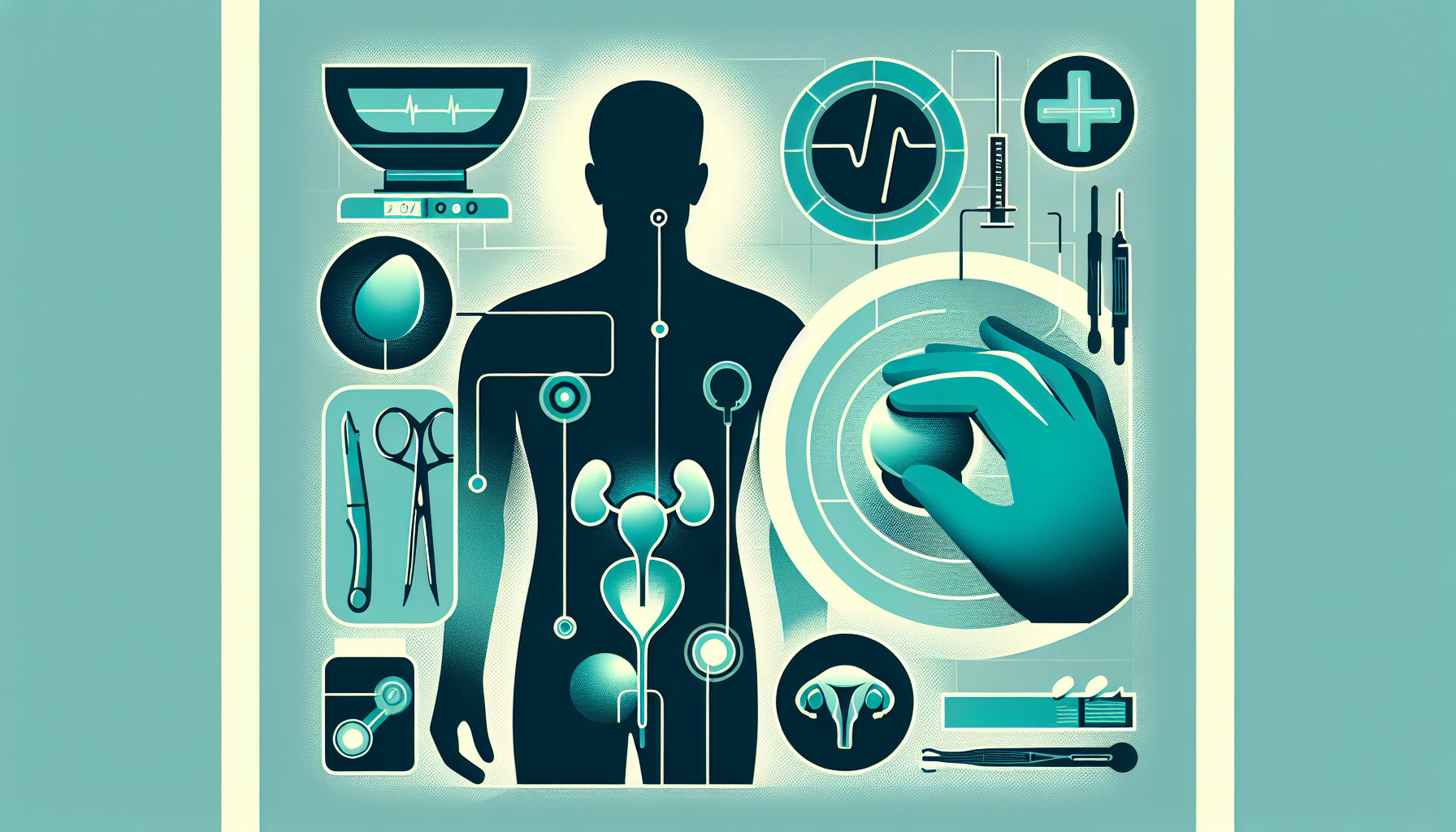Our Summary
This research examined whether testing for bacteria in urine (urine culture) before a specific type of prostate biopsy (transrectal prostate biopsy) could help reduce the chance of infection after the biopsy. The study looked at patients who had a urine test before their biopsy from January 2019 to July 2020. Researchers compared those who had bacteria in their urine before the biopsy to those who didn’t, looking at various characteristics and the occurrence of urinary tract infections after the biopsy. They found that having bacteria in the urine before the biopsy did not seem to increase the chance of infection after the biopsy. Also, the research found that having been previously hospitalized or having used a specific type of antibiotic (quinolone) were risk factors for infection after the biopsy. The study concludes that routinely performing urine cultures before this kind of prostate biopsy does not seem to reduce the risk of infection after the biopsy.
FAQs
- Does testing for bacteria in urine before a transrectal prostate biopsy help in reducing the chance of infection post-biopsy?
- What factors were found to increase the risk of infection after a transrectal prostate biopsy?
- Does the study recommend routine urine cultures before a transrectal prostate biopsy to mitigate the risk of infection?
Doctor’s Tip
A doctor might tell a patient undergoing a prostate biopsy to avoid taking quinolone antibiotics prior to the procedure to reduce the risk of infection. It is also important to follow post-biopsy care instructions carefully to minimize the chance of complications. Additionally, maintaining good hygiene and staying hydrated can help support the body’s healing process after the procedure.
Suitable For
Prostate biopsy is typically recommended for patients who have:
- Abnormal results on a prostate-specific antigen (PSA) test
- Suspicious findings on a digital rectal exam (DRE)
- Family history of prostate cancer
- Previous negative biopsy results but ongoing concerns
- Monitoring for active surveillance of low-risk prostate cancer
It is important for patients to discuss the risks and benefits of prostate biopsy with their healthcare provider to determine if it is the appropriate course of action for their individual situation.
Timeline
Before a prostate biopsy:
Consultation with a urologist: The patient will meet with a urologist to discuss the need for a prostate biopsy and the potential risks and benefits.
Preparation instructions: The patient will receive instructions on how to prepare for the biopsy, which may include stopping certain medications, bowel preparation, and fasting.
Pre-biopsy tests: The patient may undergo blood tests, urine tests, and imaging studies to assess their overall health and determine the need for the biopsy.
Antibiotic prophylaxis: The patient may be prescribed antibiotics to take before the biopsy to reduce the risk of infection.
Prostate biopsy procedure: During the biopsy, a thin needle is inserted into the prostate gland to collect tissue samples for analysis.
After a prostate biopsy:
Recovery period: The patient may experience discomfort, blood in the urine or semen, and urinary symptoms such as frequency and urgency for a few days after the biopsy.
Pathology results: The tissue samples collected during the biopsy are sent to a laboratory for analysis to determine if there are any abnormalities or signs of prostate cancer.
Follow-up appointment: The patient will have a follow-up appointment with their urologist to discuss the biopsy results and determine the next steps in their treatment plan.
Monitoring for complications: The patient will be monitored for any signs of infection or other complications that may arise after the biopsy.
Overall, the prostate biopsy process involves careful preparation, the procedure itself, and post-biopsy monitoring to ensure the patient’s health and well-being.
What to Ask Your Doctor
- What is the purpose of a prostate biopsy and why is it recommended for me?
- What are the potential risks and complications associated with a prostate biopsy?
- How will the biopsy be performed and what can I expect during the procedure?
- Are there any alternative tests or procedures that could provide similar information?
- Should I have a urine culture done before the biopsy to check for bacteria?
- What are the risk factors for infection after the biopsy and how can I reduce my risk?
- How long will it take to get the results of the biopsy and what will happen next?
- What are the possible treatment options if the biopsy results show signs of prostate cancer?
- Are there any lifestyle changes or precautions I should take before or after the biopsy?
- Are there any specific questions or concerns I should discuss with my healthcare provider before the biopsy?
Reference
Authors: Mrad Dali K, Rahoui M, Chaker K, Ouanes Y, Bibi M, Sellami A, Ben Rhouma S, Nouira Y. Journal: Prog Urol. 2022 Oct;32(12):830-835. doi: 10.1016/j.purol.2022.06.003. Epub 2022 Jul 1. PMID: 35787977
